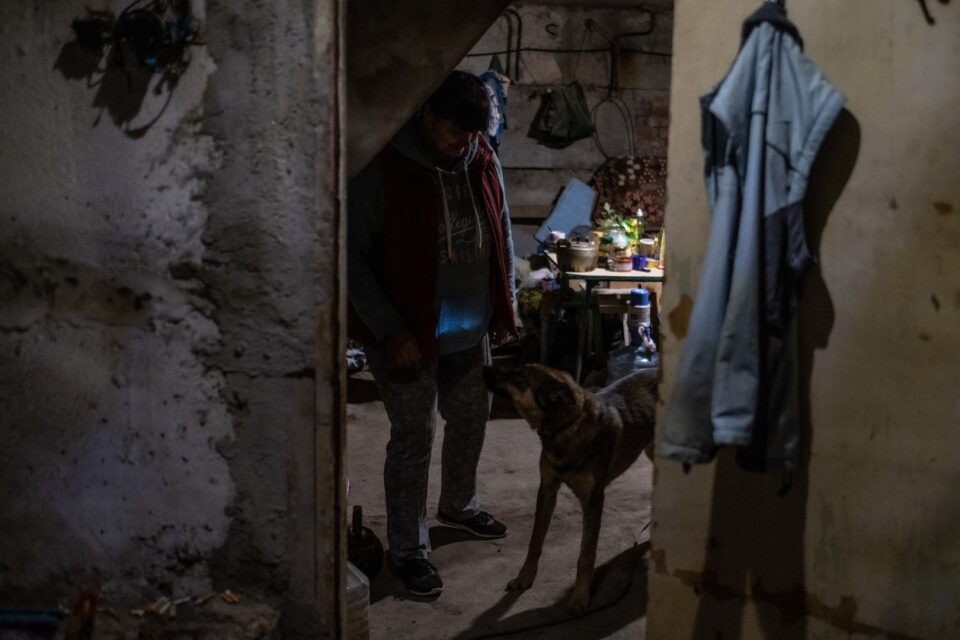Russia said Saturday that it would suspend participation in the export of agricultural products from Ukrainian ports, in response to an attack on the occupied Black Sea port of Sevastopol that it blamed on the government of Ukraine.
The Defense Ministry said in a statement published on Telegram that ships of the Black Sea Fleet and civilian ships that are involved in ensuring the security of the so-called grain corridor had come under attack. As a result, “the Russian side suspends participation in the implementation of agreements on the export of agricultural products from Ukrainian ports,” the statement said.
Ukrainian officials were largely silent on the attack, which was the first to hit Crimea since an explosion severely damaged the Kerch Strait Bridge linking the peninsula to the Russian mainland earlier this month. Moscow blamed the blast targeting that bridge on Ukrainian intelligence services.
Defense Ministry spokesman Lt. Gen. Igor Konashenkov said nine aerial drones and seven maritime drones were involved in Saturday’s attack. He said the air attacks were repelled, but a sea minesweeper, the Ivan Golubets, sustained minor damage, as did some defensive infrastructure in Yuzhnaya Bay, one of the harbor bays in Sevastopol.
Russian-installed officials said air defenses had shot down several drones in the early hours of the morning, including an unmanned surface drone in the waters off Sevastopol.
Mikhail Razvozhayev, the Russian-installed governor of Sevastopol, wrote on his Telegram messaging channel that there had been minimal damage to civilian infrastructure but city services were put on alert. He appealed to residents of the city not to publicize videos or information of the attack that could aid Ukrainian forces “to understand how the defense of our city is built.”
Ukrainian officials have not claimed responsibility for previous blasts in Crimea, including a drone strike on the headquarters of the Black Sea Fleet in August—but rejoiced and vowed to reclaim the peninsula annexed by Russia in 2014.
Crimea has served as a rear base for Moscow’s military occupation of a swath of territory in southern Ukraine, where Kyiv’s forces are now seeking to dislodge Russian forces from part of the Kherson region.
In April, the flagship of Russia’s Black Sea Fleet was struck and sunk by a pair of Ukrainian missiles in a significant blow to Moscow.
The 12,000-ton missile cruiser Moskva was critically damaged in the Black Sea south of Odessa and later sank as it was being towed to Crimea for repairs.
With winter approaching, both sides are pushing for gains before harsh weather makes combat operations more difficult.
In recent weeks, Russia has battered Ukraine’s power infrastructure using cruise missiles and Iranian-made drones while mobilizing 300,000 men to shore up its campaign. That is roughly double the number that massed on the Ukrainian border at the start of the invasion in February, according to U.S. officials’ estimates.

In Luch, a village near the Kherson front line, a resident plays with her dog in the basement where she has been living during the war.
Photo: Virginie NGUYEN HOANG for the Wa

Volunteers distribute humanitarian aid in the village.
Photo: Virginie NGUYEN HOANG for the Wa
Russian Defense Minister Sergei Shoigu on Friday said 82,000 newly conscripted men had been sent to Ukraine since the mobilization decree on Sept. 21, with the rest in training.
No further mobilization is planned, Mr. Shoigu said. But Ukrainian officials expressed doubt that the new arrivals would change the battlefield.
“Although Russia is trying to increase the pressure on our positions by using mobilized people, they are so poorly prepared and equipped, so ruthlessly used by the command that it allows us to suggest that Russia may soon need a new wave of sending people to war,” Ukraine’s President Volodymyr Zelensky said in his nightly address Friday.
Some of the newly mobilized soldiers have been deployed to the southern Kherson region, where Ukrainian forces have been working for months to cut off Russian troops on the west bank of the Dnipro River.

A worker at a Ukrainian power plant repairs equipment damaged in a missile strike.
Photo: sergei supinsky/Agence France-Presse/Getty Images

The remains of a house in the southern village of Luch, which has suffered frequent shelling.
Photo: Virginie NGUYEN HOANG for the Wa
Bridges across the river, ammunition depots and logistics centers have been repeatedly struck by Ukraine using U.S.- supplied long-range rocket systems.
Gen. Sergei Surovikin, the recently appointed commander of Russian troops in Ukraine, has acknowledged the position in Kherson is challenging and that “difficult decisions” might be called for, without elaborating.
Russian-installed officials in Kherson began telling residents to leave the city earlier this month in what they said was preparation for a Ukrainian assault. Kirill Stremousov, deputy head of the Kherson region’s Russian-installed administration on Friday said the evacuation of civilians was complete.
Strained supply lines mean Russia forces won’t be able to hold Kherson in the long term, according to military analysts. But Ukrainian officials admit the cost of retaking the city may be very high in terms of weaponry, damage to infrastructure and lives—both military and civilian.
Meanwhile, the Russian Defense Ministry spokesman accused the British Navy on Saturday of being responsible for sabotaging Nord Stream pipelines in late September. Western governments have found that explosions rocked Nord Stream and a parallel pair of pipelines, Nord Stream 2. Investigations are continuing. Some German officials have said they are working under the assumption that Russia was behind the blasts.
The U.K. Defense Ministry said in a tweet on Saturday: “To detract from their disastrous handling of the illegal invasion of Ukraine, the Russian Ministry of Defence is resorting to peddling false claims of an epic scale. This invented story, says more about arguments going on inside the Russian Government than it does about the west.”
Write to Isabel Coles at isabel.coles@wsj.com and Ann M. Simmons at ann.simmons@wsj.com
Copyright ©2022 Dow Jones & Company, Inc. All Rights Reserved. 87990cbe856818d5eddac44c7b1cdeb8


